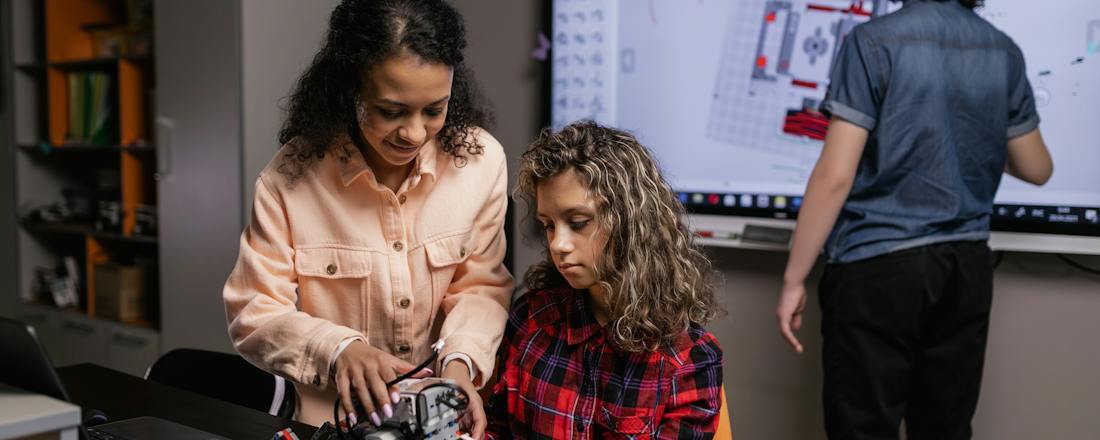The 2023 Council of British International Schools (COBIS) Annual Research Survey revealed that approximately 25 percent of international schools are dedicating time to teaching students responsible artificial intelligence (AI) use, and almost 44 percent more intend to do the same in the future.
This is one of the most comprehensive research studies on trends shaping international schools in 2024, thanks to the participation of the 161 global member schools.
1. The integration of AI in international classrooms
Following the release of ChatGPT in 2022 and its profound impact on education in the 2023 academic year, international schools have opted to embrace AI rather than oppose its use. With this in mind, 36 percent of the surveyed schools have already provided teacher training on using AI, and more have drawn up structured plans to do the same in 2024.
Another emerging AI-related trend in international schools is the modification of school and homework policies to encourage the ethical use of AI. About 13 percent of schools have added new AI-specific school policies, while another 18 percent developed new homework policies to indicate their preparedness for educating a generation that is likely to be living and working in an AI-dominated world.
2. Curriculum adaptations and focus shifts

As the world continues to change, the issues that are top of mind for today’s youth look different from the ones that concerned previous generations at their age. Consequently, international schools are adapting their curricula to draw a closer look at the issues impacting their students. These include climate change, an ever-changing digital landscape and mental health and wellbeing issues.
A significant 39 percent of the 161 international schools plan to delve deeper into climate education in 2024, as the climate change issue remains foremost on most students’ minds. With global digitalisation continually on the rise, there is an increased need to drive digital literacy and inculcate more advanced digital skills in students to prepare them for higher education and the workplace.
Project-based learning, increased oral skills and more cross-disciplinary learning are other key curriculum shifts parents and students can look forward to in 2024.
3. A renewed focus on wellbeing and safeguarding
Statistics from the World Health Organisation (WHO) show that suicide is the fourth leading cause of death among youth aged between 15 and 29. This statistic is echoed by the 67 percent of international schools in the survey that reported an increase in mental health issues in their schools.
This is up 9 percent from the 58 percent reported in the 2022 COBIS Annual Research Survey, showing a greater need to focus on wellbeing and student safeguarding. Several new student wellbeing issues also came to light in the survey, and these include eating disorders, online gaming addictions and sleep disruptions.
To effectively tackle these issues and improve pupil safeguarding, almost 90 percent of the international schools that took part in the survey reported having a staff member dedicated to pastoral care. This has already led to some gains in enhancing student wellbeing, with the number of schools reporting an increase in overall wellbeing issues decreasing by 3 percent in the 2023 survey.
Fewer schools also reported increases in behavioural or social issues. This renewed focus on pupil safeguarding and teaching critical life skills is likely to continue into the future as youth mental health issues remain prevalent.
The results from the 2023 COBIS Annual Research Survey highlight the fact that parents can rest assured that an investment in international education will continue to be one of the best competitive edges they can provide their children. As the world continues to evolve, international schools continuously adapt to changing education landscapes to remain at the forefront of global education.




